My journey with Irritable Bowel Syndrome (IBS), and candida – how I discovered my conditions and what I do to alleviate my symptoms. Hint: If you’re an instant gratification kind of person, skip to The Solution part of this post.
I know what you’re wondering, and the answer is no.
If this post had an alternative title, it would be, “No, I’m Not Pregnant, I Just Have IBS.” or “I Ate a Slice of Pizza and Didn’t Poop for 3 Days,” or “What Happens After I Eat French Fries,” or “Revenge of the Beer,” or something of that nature.
I’ve read quite a few blog articles on all facets of gut health, as well as eating disorders, and most of them are lead by a gorgeous photo of perfectly chiseled abs. I resolved that I wouldn’t lead this post with my perfectly chiseled abs, because that image is just not realistic. In fact, my belly appears flat approximately 1 day per month, and that’s a few days after ovulating, first thing in the morning after a stellar poop and sweating my face off at hot pilates after eating nothing but a kale salad the night before. Case in point: This post is about real shit (for real…it’s about legit poo), so I thought I’d show you something real – my bloated belly after eating a meal that didn’t agree with me.
But I digress…I swear there’s a purpose to this post.
Let’s back up.
This post has been mulling around in my head for months, and I can’t tell you how excited (and relieved!!) I am to finally share it with you. There’s a piece of information I want to let you in on, because chances are, this may help you or someone you know. Also, I’m in the mood to bond, so I say let’s grab a mug of hot tea, unbutton our britches, and let it all hang out.
Mega Spoiler: Hey. I’m Julia Mueller, and I have Irritable Bowel Syndrome (henceforth known as IBS).
… and have also dabbled in the wonderful world of leaky gut and candida.
I’ve spoken about gut health quite a bit on this site for a number of reasons. For me, the strengthening and healing power of food is overwhelmingly fascinating, and it just so happens gut health has been my biggest challenge for the past 6 years. It’s clear I eat a restricted diet (you notice all of my recipes are gluten-free, and a majority of them are also dairy-free, refined sugar-free, grain-free, etc.), and now it’s time for you to know why.
Disclaimer: I want you to know where this post is coming from. First and foremost, I think information is power, and if my experience can help one single person figure out their own digestive woes, I’m psyched. This post is not coming from any sort of megalomaniacal cult-like food dogma, a need to spread my opinion, or a cagey desire to control other people’s decisions. Because, truthfully, I’ve got 99 problems, but giving two shits about what other people put in their bodies is not one. I’m simply wanting to bond with you, and am hoping I can help someone relieve their gas.
Full disclosure: While I’m not a nutritionist and have zero ground to stand on in the medical community, my years of research and journey with my own health has resulted in enough knowledge to have a reasonably informative conversation about digestive wellness. If you’re experiencing severe symptoms, follow your gut and seek medical attention! While so many ailments can be alleviated through a careful diet, modern medicine definitely has its place in treatment! Lettuce proceed.
First, let’s talk about me.
Hopefully you aren’t squeamish, poo shy, or under the impression that I’m magically made out of unicorn sneezes and well-tuned piccolo music, because if that’s the case, this post may be a bit painful for you. But, in my opinion, it’s for your own good.
I want to give you the full story on how I discovered I have IBS, because there are so many individuals who have a similar history, and may still be looking for answers. If your story is like mine, or if you know someone whose story is like mine, know that we’re in this together.
So here we go.
My digestive system has been an enigma my whole life. When I was a child, some of my earliest memories were in my doctor’s office, trying to figure out why I was constantly stopped up. I have a visual memory of looking at an xray with my doctor outlining a huge lump in my belly, telling my mom, “See this whole area? This is all poop.” Yup, when I was a kid, I was constipated AF, an issue that continued into my early twenties until I began eating a ton of vegetables and drinking coffee (more on that later).
I was given enemas and laxatives, which seemed to be the only thing that would work. My constipation continued through my teenage years, albeit wasn’t as bad as my childhood constipation. Keep in mind, I ate a highly processed diet (pasta, sugary treats, drank a huge glass of milk at every meal, no fresh veggies, you name it, my diet was awful) until my mid-twenties.
During my teenage years, I never gave my bowels much thought, as I assumed every ache and pain I felt was completely normal. I assumed everyone felt like crap after eating. In essence, the constipation wasn’t very bothersome, but what was more disconcerting was I suffered from depression (make a mental note of this, as it becomes important later), so that was the only ailment I was really focusing on. I treated my depression with homeopathic remedies and also medication for a short period of time.
It wasn’t until my gastrointestinal symptoms became worse with a vengeance in my mid-twenties that I started realizing my digestive system was far from normal. The constipation issue only came up a couple times a month, because I started eating well – I became more cognizant of my vegetable intake, stopped eating gluten, dairy, and refined sugar, and was nearly full-tilt paleo for two years (I say “nearly,” because for a while there, I was still eating oatmeal for breakfast).
In spite of eating a modified paleo diet, these new-found would-be healthy habits, my symptoms changed from the usual constipation to periodical intense lower abdominal pain or upper abdomen distention, loose stool, bloating, fatigue, and really bad gas. We’re talking gnarly. And non-stop. And this continued for upwards of six years.
I had noticed tremendous lower abdominal pain when I’d eat more than a single slice of bread or pizza (followed by not being able to poo for 3 days) or drank a beer, so I figured there was a gluten issue. This made sense, because there are a couple of women in my family who are diagnosed Celiac, so I assumed I had an intolerance rather than an allergy.
Sometimes the symptoms would be fairly mild, and sometimes I thought I was on my deathbed. The more carefully I ate, the better my symptoms were, although they still were lurking around, and I could never tell when they were going to hit since I wasn’t able to pinpoint specific trigger foods other than gluten.
I broke plans, I shed tears, I wondered why I couldn’t eat (or drink) like my friends or my boyfriend without having serious repercussions…I felt as though my life was in shambles. I knew the symptoms were either food-related, or due to a bacterial issues, or both, so I started digging into the possible causes. And thereby sent myself on an epic wild goose chase.
The bulk of my symptoms occurred at night after eating dinner (keep this in mind, because again, it becomes important later), so I was pretty positive it was something I was eating that was feeding the bad bacteria in my gut, allowing them to reign over the healthy bacteria. Basically, I thought I had candida or leaky gut syndrome, or both. (<- Hint: I still think I may, although I’ve never been diagnosed) I was eating a lot more vegetables and nuts, so I was aware that specific vegetables and nuts could be the cause, but I had a difficult time nailing down which ones were problematic.
I knew something I was doing was causing damage to my gut lining and causing me to not properly absorb my food, which was why in spite of eating a healthy diet and exercising, I was still perma-tired, depressed, and generally had a negative outlook on life.
If you’re unfamiliar, candida is an overgrowth of fungus that breaks down your intestinal walls, causing partially-digested food matter and toxins to enter your bloodstream (this permeation is known as leaky gut syndrome). Those who suffer from candida and leaky gut can alleviate their symptoms by eating a candida diet, which is very similar to a paleo diet. The candida diet omits processed foods, wheat, dairy, sugar, alcohol, and starchy vegetables (potatoes) and focuses largely on low-starch vegetables, gluten-free grains, fruit, lean animal protein, and naturally fermented foods. Candida and leaky gut commonly arise over time due to continuous damage to your digestive system when you eat a highly processed diet (like I did when I was a kid), or foods you’re intolerant to. If you’re wondering whether or not you have leaky gut, you can read more about it in this article.
As I mentioned before, eating a paleo/candida diet did help a bit, but it wasn’t the solution…I still had symptoms in spite of being very careful with what I’d eat, and for the life of me, I couldn’t figure out what it was. My self-diagnosis ran the full gameat. For a while, I thought it was too much fat and animal protein – when you eat a paleo/candida diet, you tend to supplement your calories with fat and high amounts of animal protein, since you aren’t eating very many carbohydrates. So I cut down on my fat and meat intake, but nothing changed.
Then, I began thinking it was cruciferous vegetables because I noticed cauliflower could be problematic from time to time. So I stopped eating cruciferous vegetables for a while, which helped a little, and yet my symptoms didn’t disappear entirely. I thought it was coffee and alcohol, so I stopped drinking those…again, small improvement, but no actual solution.
I began noticing upset stomach immediately after eating sweet treats (even if just the portion was very small). Although I wasn’t eating refined sugar, I was still consuming natural sweeteners like honey, agave, and pure maple syrup, and also eating bananas. So I stopped eating all sugar (including natural sweeteners and fruit), and my symptoms improved substantially.
And at this point, you’re probably SO OVER reading all these details…truly, I did consider leaving all of them out, but my guess is there are many of you who have gone through (or are going through) the same thing. Keep bearing with me. There’s an end and a solution in sight.
So you can see why this is complicated. I was already eating a very restricted, low-inflammation, unprocessed whole food diet, and yet I’d still experiencing inflammation, unhappy gut symptoms, fatigue, anger, and depression. I’d eat roasted vegetables (ROASTED VEGETABLES, PEOPLE!!), and feel like I was going to die.
I’d omit, I’d add back, I’d omit, I’d add back. I was basically distraught and out of ideas.
Seeing the Light
Eight months ago, I went to an integrative health doctor, who upon running a body scan determined I was highly reactive to bananas and cashews (among a slew of other things that are impertinent to this discussion). So I omitted bananas and cashews, began drinking super filtered water (I’ve spoken to you about my Berkey water filter on my instagram story…I swear by that thing!), stopped drinking as much coffee, cut out alcohol entirely, and definitely felt a difference. But – and I’d hate to sound like a broken record – I was still periodically getting the nighttime abdomen pain and gas.
Fast forward to one fine day about six months ago, when I happened to be researching whether or not sugar alcohols like erythritol caused any gut issues or long-term health problems (I was doing so for this post for frame of reference). I crash landed on this article: Sugar Alcohols: The “Good” Sweetener and all of a sudden, my life changed. The article talked about FODMAPs, an acronym I had seen a couple of times previously but with which I was unfamiliar. So being the curious soul I am, I dug deeper into FODMAPs, and had the biggest Eureka moment you could imagine.
The more I read, the more convinced I was that high-FODMAP foods were the culprit. And that brings us to where I am today. After six months of testing the foods I’m most reactive to, I now know I have IBS, triggered by high-FODMAP foods (particularly onions, garlic, wheat, cauliflower, chickpeas, sugar alcohols (like erythritol and xylitol) and honey) with an additional intolerance to bananas and cashews (which are technically low-FODMAP, but still bother me).
Having the previous knowledge of what some of my trigger foods were was very helpful. I never could have guessed that onions and garlic would be my biggest triggers, which is why it took so long to figure out what was wrong with my system in spite of eating a restricted low-inflammation candida/paleo diet.
So..
What Are FODMAPs?
FODMAPs are Fermentable Oligosaccharides Disaccharides Monosaccharides And Polyols. Put simply, all of these are short chain carbohydrates and sugar alcohols found in natural whole foods. These compounds can be difficult for some people to digest, particularly those with Irritable Bowel Syndrome. Foods that are high in FODMAPs (onions, garlic, wheat (not to be confused with gluten…we’ll get to that later), cauliflower, cabbage, fermented foods, avocado, and many, many more – see the full chart of high and low-FODMAP foods here) can cause painful symptoms such as gas, bloating, distention, fatigue, and irregular bowel movements.
You can look at a FODMAP sensitivity similarly to lactose intolerance. Someone who is lactose intolerant lacks the enzymes to break down the lactose in milk, so milk makes them ill. Those who have issues digesting high-FODMAP foods lack the tools to break them down, which causes the carbohydrates to ferment in your gut or permeate your gut lining and enter your bloodstream. Delicious, I know. So in this sense, it isn’t uncommon for someone with IBS to also have candida and/or leaky gut syndrome. Ergo, part of my self-diagnosis was correct all along…it was the underlying cause I needed to discover.
If you look at the complete list of low-FODMAP versus high-FODMAP foods, you’ll probably react the same way my friends and family reacted when I told them my news. “What can you eat?” Well, we’ll get to that, but it isn’t the case that I can’t consume any foods that are high in these carbohydrates, it’s just that I have to restrict the amount.
The effects of high-FODMAP foods are cumulative. Essentially, when you’re sensitive to high-FODMAP foods, there’s a certain amount that your body will tolerate throughout the day, but once you break a certain threshold, that’s when the symptoms begin, and certain foods get you there faster. For most people who have IBS, onions and garlic trigger an immediate reaction.
Can you handle even more complicated information. Stick with me!
What is IBS?
What a great question! Irritable Bowel Syndrome is a general term used to classify an underlying issue with your large intestine. The symptoms are abdominal pain, gas, bloating, diarrhea, and/or constipation. The condition is chronic, but can be alleviated through managing diet, exercise, and stress. Unfortunately, it’s one of those conditions that never really goes away (unless you get a fecal transplant or a bowel resection), but depending upon the severity, the good news is you can regulate your symptoms through a mindful diet and exercise.
The cause of IBS is somewhat unknown but it seems most medical professionals agree it can be either genetic or caused by damage done throughout your lifetime due to poor eating habits. In my case, I’ve always had IBS, and my symptoms worsened over time due to a poor diet as a child, so I’ve experienced both elements. There are varying levels of severity of IBS, and most people find relief with maintaining a careful diet.
Prebiotics & Probiotics & IBS
Okay, so now we understand what FODMAPs are and what IBS is, and we also know a healthy gut is one where healthy, beneficial bacteria outweigh harmful bacteria. As it turns out, achieving a favorable amount of healthy bacteria is challenging when you have IBS.
70% (and we could potentially argue more) of your overall health resides in your gut. Having a healthy gut biome is what wards off illness, processes food properly, absorbs nutrients efficiently, and keeps your gut happy. Your vagus nerve runs from your abdomen to your brainstem and transmits information to your brain about your overall well-being, which means a happy gut equates to a happy mind. A gut that’s in disarray can cause a plethora of secondary issues, such as a weakened immune system, low energy, weight gain or loss, autoimmune disease, cancer, depression, anxiety, and more.
As I mentioned in my Prebiotic and Probiotic Macro Bowls post, your gut works best when you have a healthy balance of good bacteria and yeast, which can be introduced into your system via fermented foods or probiotic supplements. In addition, your body’s healthy bacteria functions best when it has healthy dose of natural carbohydrates (prebiotics) to feed on in order to keep the good bacteria flourishing. Guess what foods are high in prebiotics? Foods that are high in FODMAPS, such as onions, garlic, asparagus, dandelion greens, etc. These carbohydrates that would feed healthy gut bacteria in a healthy gut wreak havoc on the guts of individuals with IBS.
This means not only do we have difficulty digesting a plethora of foods, but the very foods that introduce healthy bacteria into our system (fermented foods) and feed said bacteria are among those that are indigestible. Epic mind fuck, I know. Not being able to properly digest probiotic-rich fermented food and prebiotics makes it difficult to keep a healthy balance of good gut bacteria. Not impossible, just difficult.
The Solution
So how do we solve all of this? What’s the game plan? Big picture, the plan is to heal the damaged gut and to keep it healthy in order to alleviate IBS symptoms. To do this, you must eat a very unprocessed whole food diet (whole30/paleo/candida diet works very well for restoring gut health) rich in vegetables and lean protein. You also must be cognizant of the amount of high-FODMAP foods you consume (or avoid them altogether if your gut damage is super advanced).
Because I can’t get my probiotic intake from fermented foods without experiencing IBS symptoms, I take a potent probiotic supplement (I have found great success with ProBiotic 225, MegaFood MegaFlora Plus, and LoveBug’s Yeast is a Beast). I’ll go into more detail about these probiotics in a future post, but in the meantime it’s important to know what works for me may not work for you, so please keep that in mind when deciding which (if any) probiotic supplements to buy.
The probiotic industry is not regulated by the FDA, and many probiotics don’t actually have the full count of active live cultures they claim on the bottle. In addition, your body has a unique need for specific probiotics, which is very difficult to know – essentially, you could take probiotic supplements all day long and still not get the strain(s) you need. There is a ton of research going on this very moment to try to nail down the types of probiotics individuals with specific digestive conditions need. I’ll keep you posted as I learn more information about this.
I also take powerful digestive enzymes with every meal, which help break down proteins and fats, lactose, etc. I have found Digest Gold works very well, and NOW Super Enzymes will do in a pinch, too. Taking digestive enzymes gives your body additional support in digestion, which is particularly helpful for those who generally have a difficult time breaking down food.
And for those times I get a little off-kilter and eat something I know is going to mess me up? I keep Charcoal pills with me in my purse. Charcoal essentially absorbs everything in your stomach, including gasses, which helps avoid the gnarly gas that comes with eating high-FODMAP foods, and/or too much fat. Let’s face it: even after figuring out my digestive issues, I’m still imperfect. I love eating out, I can’t stop with the spicy food, and I try not to be allergic to fun… so I take charcoal when I can feel things rumbling in my tummy after a fiery Thai meal or drinking one too many glasses of wine.
A FODMAP elimination diet is also a great tool for those who have IBS, as not all high-FODMAP foods are triggers for everyone, so why omit them from your diet if they bode well with your system? Essentially you’d eliminate each type of carbohydrate, starting with the oligosaccharides, move to the disaccharides, etc., until you have eliminated all FODMAPs. After you reach that point, you could add back one single food in a low volume, and wait for three days to see how you feel. For a comprehensive guide to a FODMAP elimination diet (as well as lots of low-FODMAP recipes), check out Healthy Gut, Flat Stomach by Danielle Capalino.
I haven’t done a FODMAP elimination diet because I was able to figure out my biggest triggers pretty quickly: onions, garlic, cauliflower, honey, sugar alcohols (like erythritol and xylitol), chickpeas, bananas, and nuts in “high” quantities (any more than 1/4 cup). I’ll keep you posted if I end up doing any sort of elimination diet, but for now, I’ve been doing pretty well with low-FODMAP veggies, lean protein (chicken and salmon are my jam), and rice.
What about a long-term solution?
I’ve read that folks with IBS can cure their symptoms with a fecal transplant, so if life feels too short to not eat high-FODMAP foods, there theoretically is a light at the end of the tunnel. I’ll keep you updated in future posts if I find a solution other than a low-FODMAP diet or fecal transplant 😉
So to recap, what I do to alleviate my IBS symptoms is to..
- Eat an unprocessed whole food diet (Personally, Paleo + rice and a small amount of sugar in the form of dark chocolate or pure maple syrup-sweetened GF treats works best for me. I don’t eat very much fruit, because most fruit trigger my symptoms almost instantly).
- Eat foods that are lower in FODMAPs (zero onions and garlic at home, and I stay cognizant of what to order when I eat out).
- Pay close attention to how much protein and carbohydrates I eat, versus fiber – I recently began tracking my macro nutrients using an app called Cronometer (it also tracks vitamins and minerals!!), and discovered I actually wasn’t eating enough protein and carbohydrates – when I upped the ante on both, my stomach felt worlds better.
- Limit coffee and alcohol intake – there are few things I love more than both coffee and alcohol, but I have to be careful about limiting both. I drink one cup of coffee per day (sometimes I switch to matcha), and only a few drinks (or less) per week – typically a no-sulfite wine or tequila +soda water +lime.
- Take probiotics every single day, often with every single meal. I also take a multi-vitamin to be sure I’m getting everything I need. Many people will tell you as long as you eat a high-variety diet rich in plants, you’ll get enough nutrients from your food. WRONG. Our soil is so depleted that the amount of nutrients in vegetables (and meat) is fractional compared to how they used to be. You really do need to supplement your vitamin intake. I also take digestive enzymes when travelling because in general my digestive system has a difficult time moving when I’m out of my routine, and I also take digestive enzymes when I’ve eaten a large meal and feel like it’s just sitting in my stomach.
- Try to avoid over-eating. You guys, this is my biggest challenge, because I LOVE eating large meals…but my body doesn’t do well with that, so I *try* to stick to a 4 to 5 small meals a day regimen. It’s a work in progress.
- Try to avoid under-eating. From time to time, I accidentally skip a meal. It happens…you travel, you get busy, you forget, whatever…when I skip meals or don’t eat enough during the day, I find my IBS symptoms flair up. I get gassy with the meal following an unintentional fast, and often constipated when I don’t eat enough.
Big note: If you have IBS, this doesn’t mean you should do exactly as I do, as everyone’s nutritional and health needs are different.
Now it all makes sense
Now everything makes complete sense. The fact that I was eating a whole food diet and still feeling crappy, the fact that my symptoms occurred at night after reaching my FODMAP intake threshhold, the fact that I was so tired all the time all stemmed from my body’s inability to absorb the nutrients I was putting in it due to a highly irritable gut. was because I was still eating foods that were high in a compound my body simply couldn’t tolerate.
I now have a better awareness of how much high-FODMAP food I can tolerate (I can now easily tell when I’m at the threshhold). Since I never eat onions and garlic, I can also now eat a {{small}} amount of certain foods I couldn’t tolerate as well before, for instance: bananas, almond flour treats, and cashews.
It makes sense why the candida diet was helpful, but not the cure all, because onions, garlic, cauliflower, honey, fermented foods, and many, many other high-FODMAP foods are actually candida-friendly. I was eating them like crazy, never suspecting that onions and garlic and sauerkraut of all things could be the root of my issues.
Additionally, I now understand why my symptoms changed over time from constipation to depression, to lower abdominal fiery. IBS has a way of manifesting itself in different ways. Depending on how it effects your body, you may always have the same symptoms, or they may change over time. For me, my bowels can shift from constipation to the other thing within a 24-hour window. It’s just that finicky.
Phew! Which brings me to my next point..
Personalized Nutrition
Have you noticed people constantly feel like they have to defend their food and alcohol decisions? Do you feel like you have to defend your food and alcohol decisions? I do. It used to be you had to explain yourself if you smoked pot, dyed your hair purple, got a tattoo, or wore jorts that accentuated camel toe, but now those things are commonplace and require no explanation, whereas what you eat somehow does…? Why?
One of the reasons I felt prompted to write this post is a reaction to the discussion on health, nutrition, and fad diets in the media. I get it…everyone hates fad diets because the concept triggers some deep-seeded aversion to self-control, and ain’t nothing gonna tie baby down. The discussion ranges from whether or not we should be eating a diet rich in whole grains, animal protein, high amounts of fat, sugar, and/or whether or not we should go vegan. There are so many voices weighing in on this discussion both from highly qualified individuals and ill-qualified individuals…if I’m being honest, the discussion is kind of overwhelming. Generally, my approach to this sort of situation is to sit on the sideline and watch the crazies battle it out.
…But I feel like I need to weigh in, even if it’s in this one small way.
The element the aforementioned discussion is missing is personalized nutrition. When we make blanketed statements about how everyone should eat carbs, or people who eat a low-carb diet are allergic to fun, vain, stupid, or some permutation thereof, we are completely discarding this enormous population of individuals who must be careful with what they eat for medical reasons. We’re discarding the entire community of people with food intolerances, digestive disorders, autoimmune disease, diabetes, cancer, heart disease, etc.
If we stop making opinion-based statements about who should be eating what, we can open our minds to facts, and open our hearts to individuals who were unlucky enough to be born with (or acquire) autoimmunity. Hell, we can provide support and understanding.
The fact is, what works for you may not work for your neighbor. I can’t eat a vegetarian diet (unless I want to be protein-deficient), because beans, nuts, and soy are extremely rough on my digestive system. Yet, one of my friends recently went vegan, as she found a vegan diet works extremely well for her body and alleviates her GI symptoms. Another one of my friends has to eat an AIP diet (learn more about AIP here) to alleviate inflammation due to rheumatoid arthritis. She LOVES alcohol and pizza and cookies and half & half in her coffee… but she loves getting out of bed more. The mistake our media has made over the last couple years is making people feel like they have to justify their food intake. Not cool, bro.
I listened to this and this podcast with Robb Wolf a couple months ago in regards to his new book, Wired to Eat (which I’m also currently reading), which focuses on finding an eating lifestyle that’s right for your body and gut biome so that you can live well. To give a simple example on how two individual’s nutritional needs can be completely different, two people can eat the same amount of carbohydrates (we’ll say in the form of bread or rice), test their blood glucose levels a couple hours later, and discover their blood sugar is vastly different from one another. Perhaps one person’s will be normal, and the other person’s will be dangerously high. This difference is a matter of DNA, body composition, insulin resistance, and other mystical elements we’ll call fairy dust (as in, who knows).
Most people find they thrive best when their body is getting the nutrients it needs and can process efficiently – those needs are completely unique from individual to individual. And you guys, even if a person chooses to restrict what they eat for vanity reasons alone, is it really anyone else’s place to have an opinion about it? I 200% think not.
To put it into perspective…would you ask your friend who is lactose intolerant to drink a glass of milk? No, because that’d be a real dick move. The same goes for telling people they should not only not be afraid of wheat or sugar (for example), but they should also consume it regularly… or on the flipside, telling people they should never eat grains, period, end. For every opinion, there is a population of individuals to whom it can’t possibly apply. You catch my drift? I hope so, because I was beginning to get real pitted out there for a second.
Conclusion
If you have experienced GI issues, you’re not alone. In fact, you’re in really great company. This is not insurmountable, and should not be looked upon in a negative light. If anything, IBS encourages us to eat well, move often, and to be creative in the kitchen.
I began a new category on my site for Low-FODMAP recipes geared specifically for those who have similar issues to me, but they’re also awesome for folks who don’t suffer from IBS as well. I will also continue posting recipes that aren’t exactly favorable for those who have IBS (this isn’t going to turn into an IBS blog, although I have definitely considered it!), so for those of you with stellar digestive systems, don’t worry, you aren’t being penalized 😉
My last big takeaway in this post is to trust yourself…to follow your gut…and to be your biggest hero in advocating for your own health, as your body is yours and you’re the only person who has to live with it. I wish you well on your journey with gut health, and with figuring out a food plan that works best for you! If you’re experiencing food-related health issues and are afraid of making a change because you don’t want to be seen as “one of thoooose” people, or perceive yourself as a stick in the mud, fear not…you can have a restricted diet (whatever it may be) and still have fun. I mean, just look at this beautiful display of autoimmunity (my friend who has rheumatoid arthritis and I)….the point is, you can make it work!
Stay tuned! I plan to make this a regular thing, because the topic of gut health is so extensive and important, I think it needs more attention on this site. I’ll be posting soon on how to exercise and eat to improve your gut health in order to keep your symptoms under control. In the meantime, if you have any comments, questions, and/or want me to address any specific topics, let me know!
xo
Also read my 8 Natural Remedies to Relieve IBS Symptoms
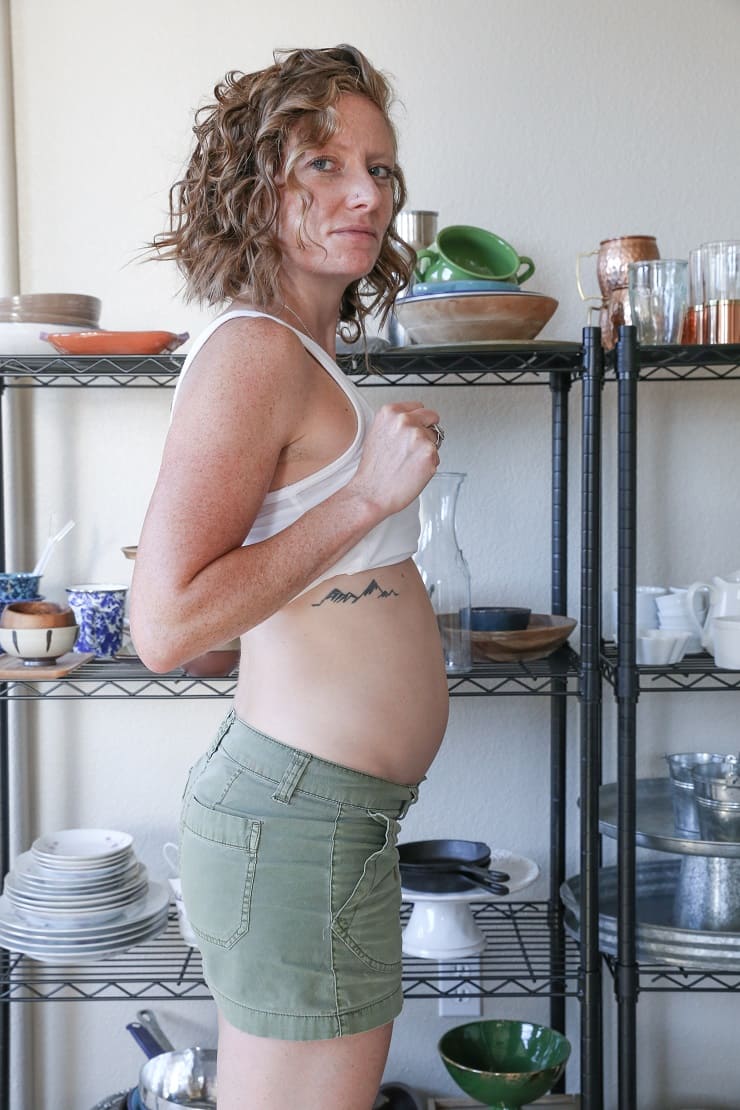
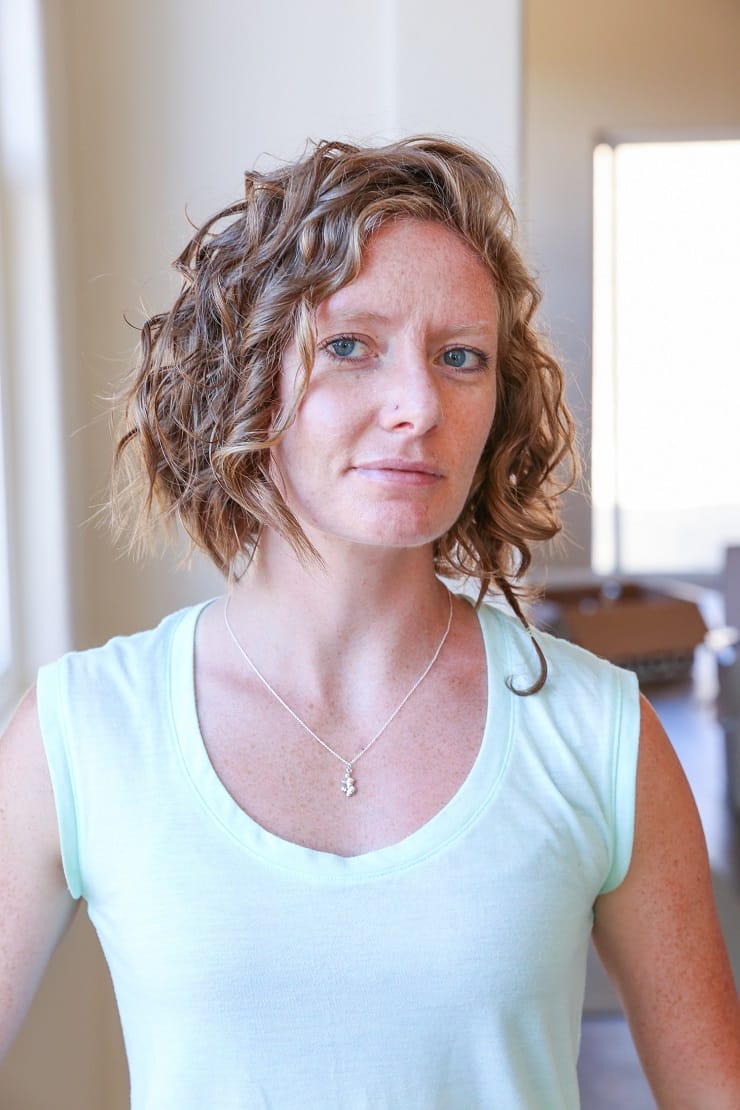
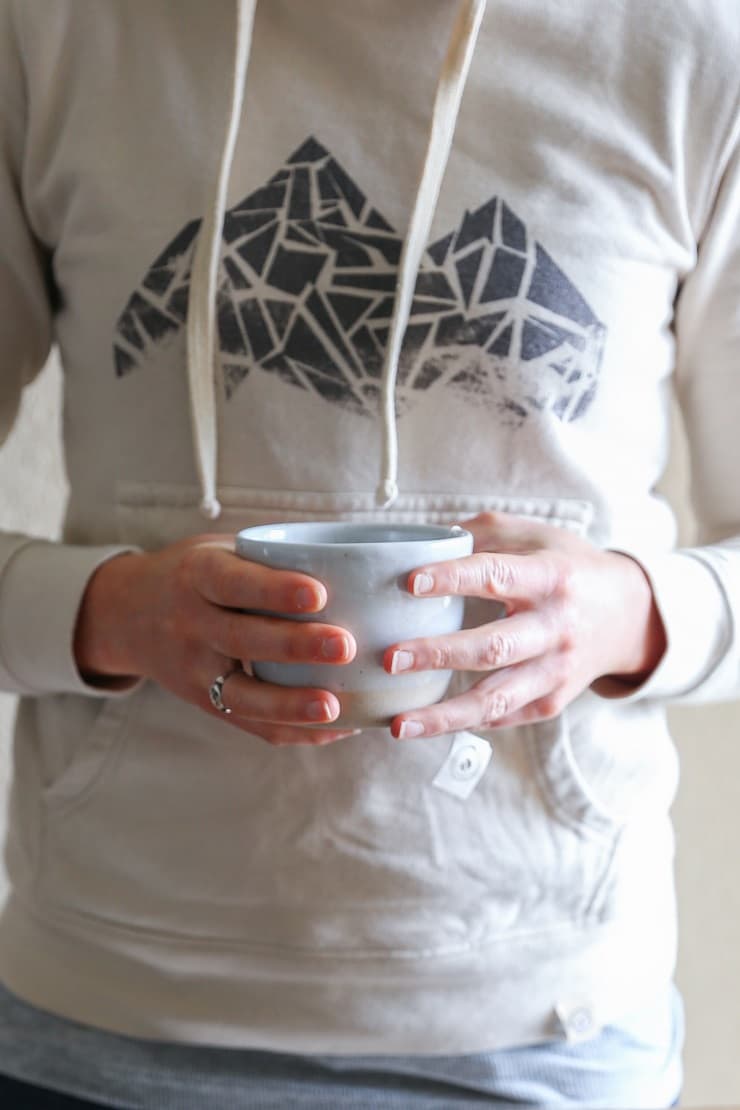
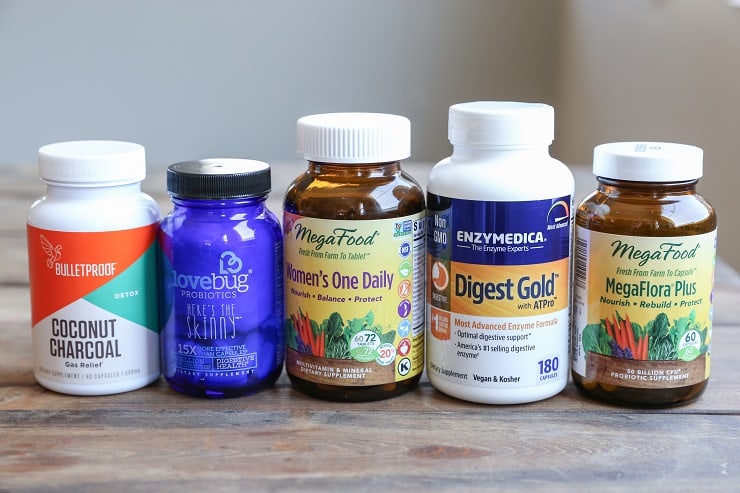
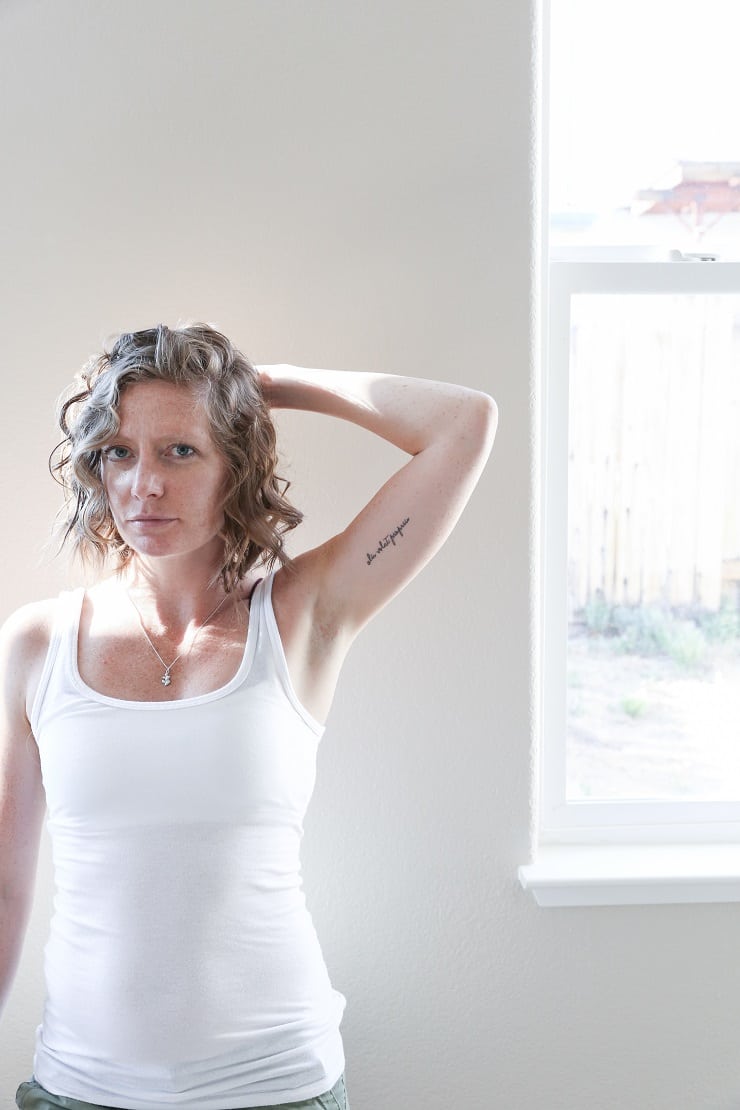

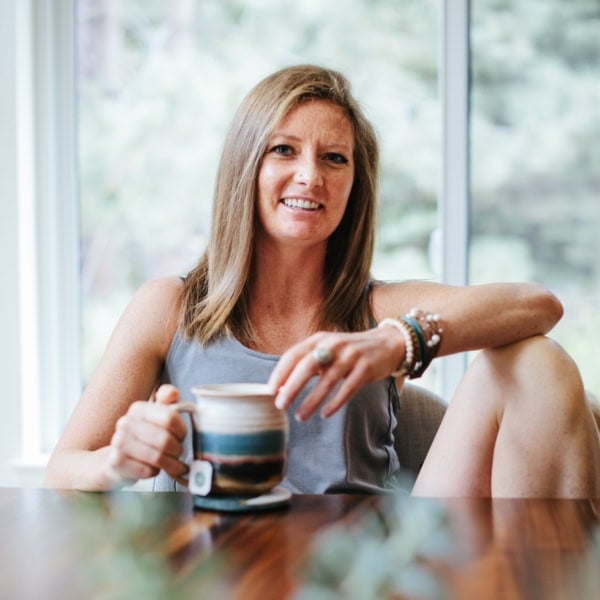
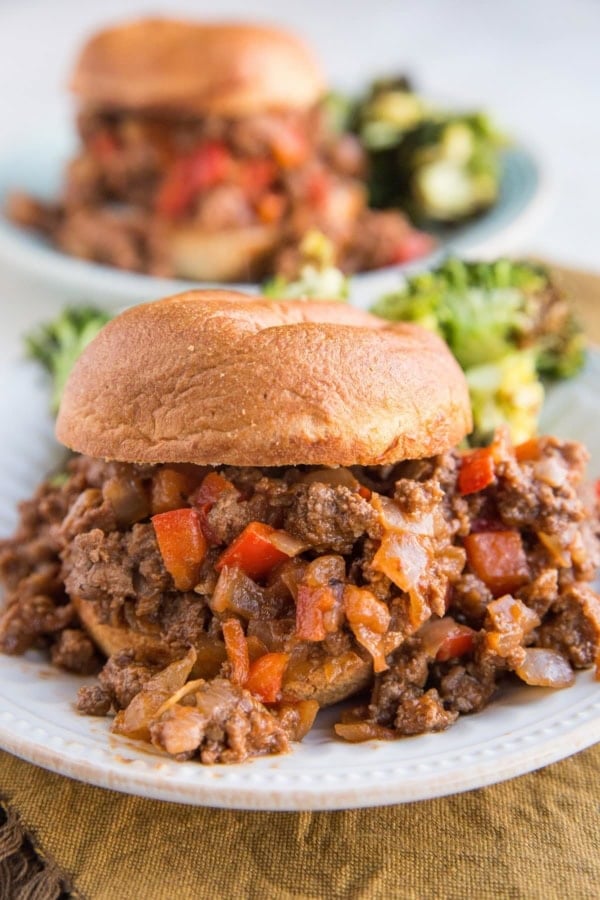
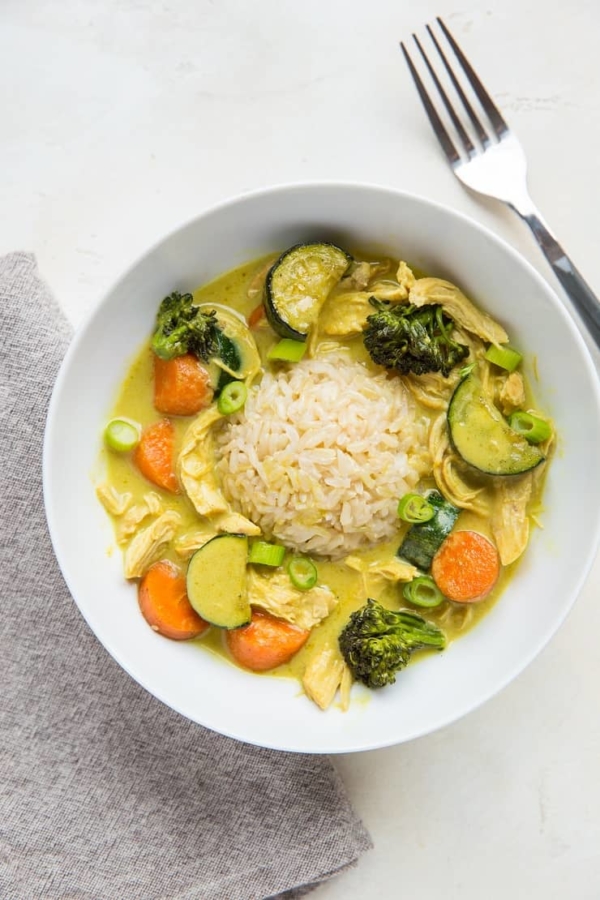
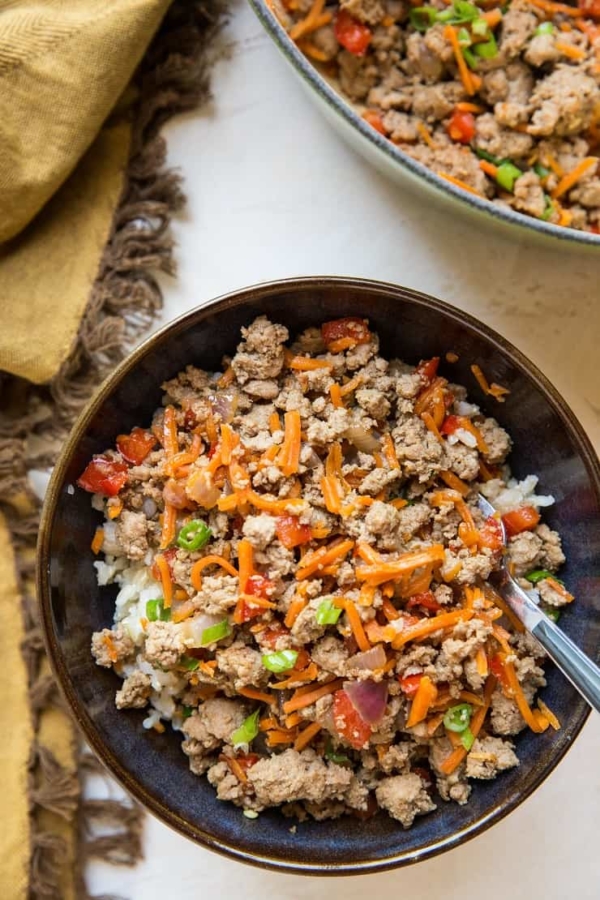
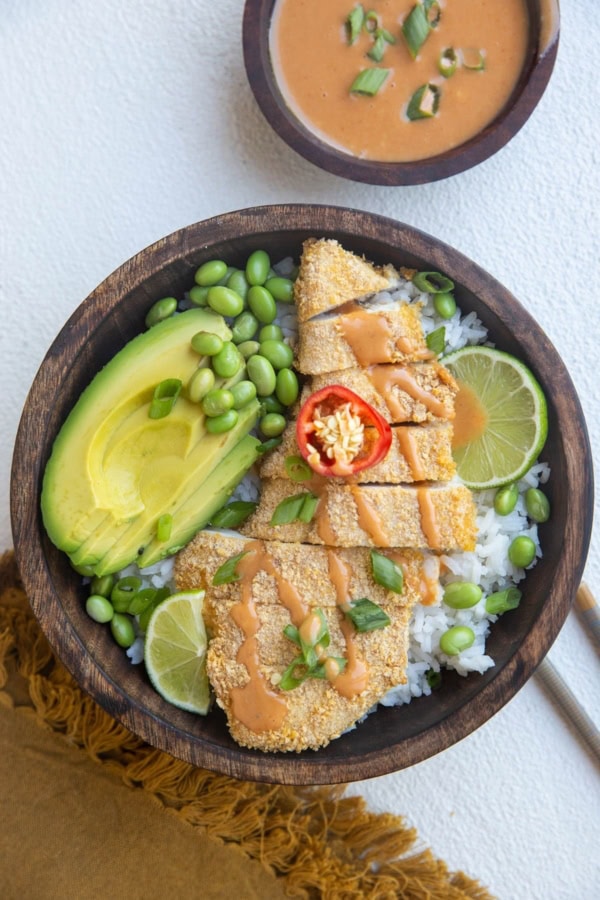









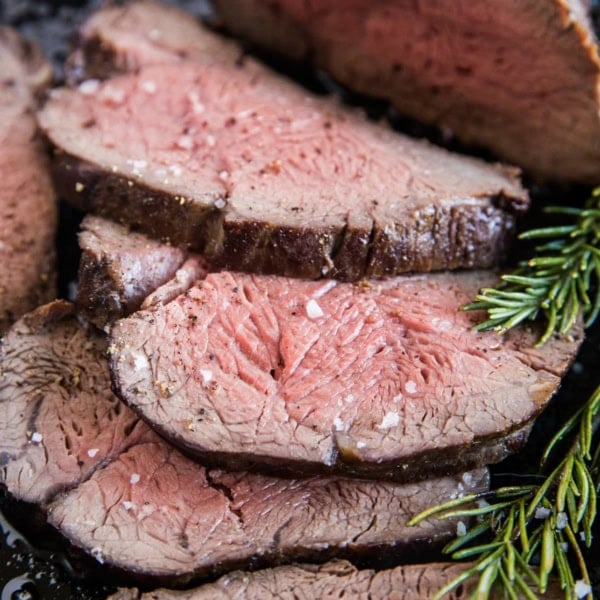
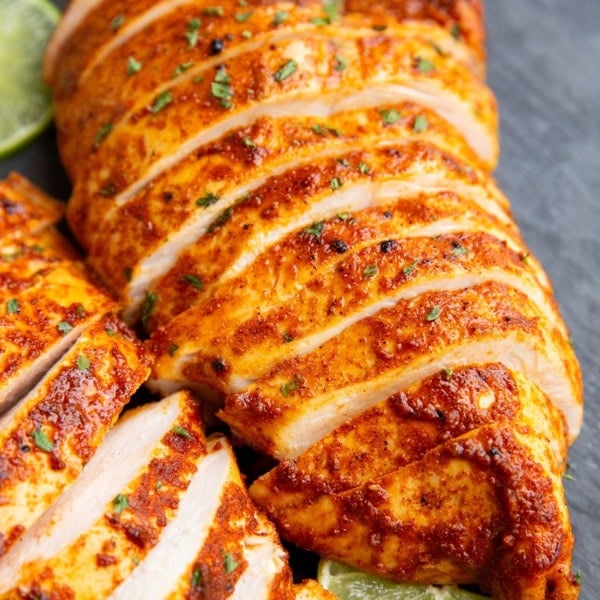
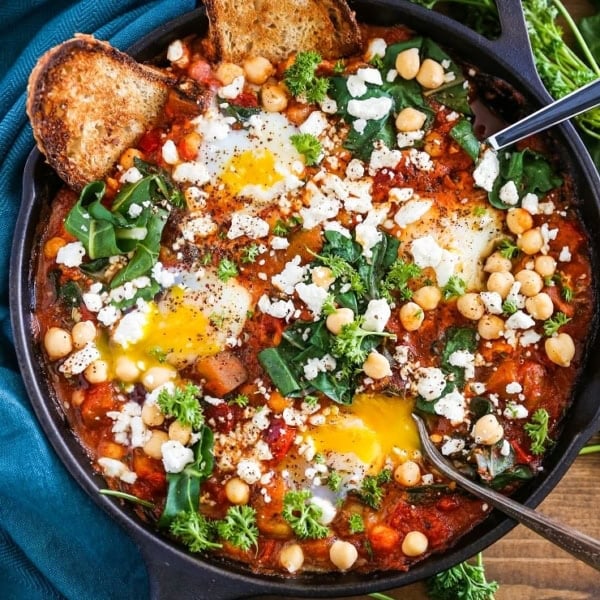
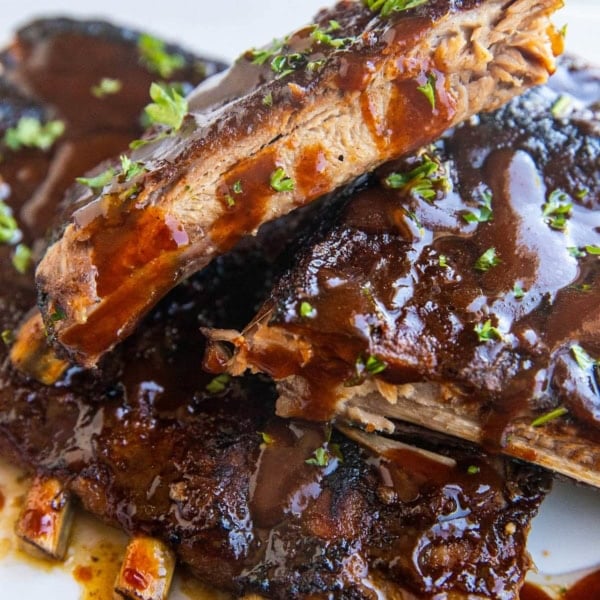
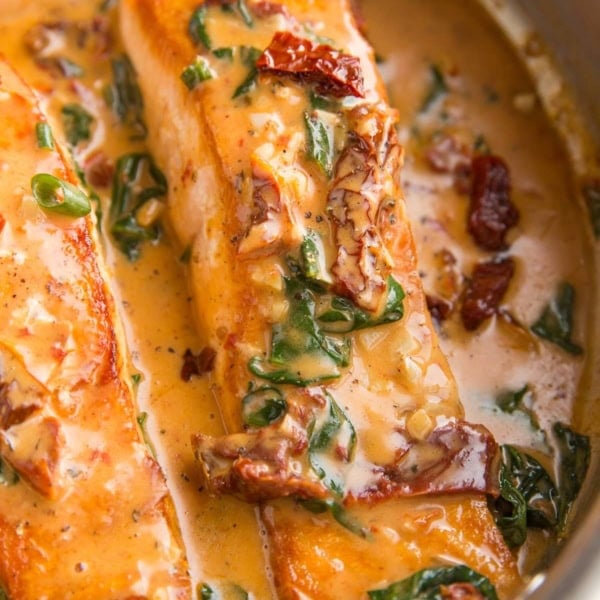
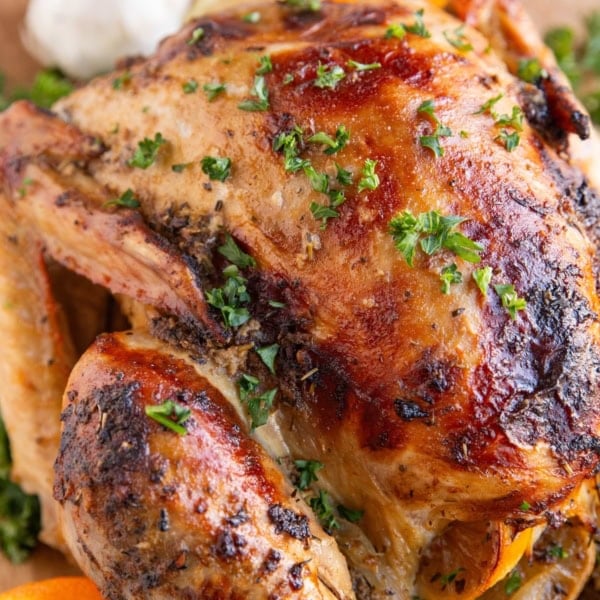
Great post – thank you v much. (I only discovered your site yesterday and it’s brilliant) I have IBD (Inflammatory Bowel Disease) a close and nasty relative of IBS so I have experienced many of the issues you mention. I thought the following information might be of use. Re: Probiotics – I am prescribed VSL 3 by my doctor (in the UK) and there are research papers to support it’s effectiveness. If I can’t get hold of VSL3 there is a good range of probiotics produced by Optibac (a UK company) which cover a range of conditions. Re: Fodmaps- there is a great FODMAP app produced by Monash University (Au). Anyone interested in learning more about Food as Medicine (and FODMAPs and inflammation) could check out the free online course (of that name) which is available via Futurelearn.com. The free course is produced by Monash University. thank you again.
Hi Claira! Thank you so much for your probiotics intel! They’re so important, and it is definitely challenging finding a good one these days! I’ll have to check out the FODMAP app! Thanks again for the input..my warmest wishes go out to you, and I’m sending all my good juju your way for alleviating your IBD! 😀 xo
Hey! Thanks for linking my podcast! I loved the blogpost, super detailed!!
-G
You got it!! I really enjoyed it! Thank you for the awesome podcasts, and keep up the good work! xo
Nice!! So glad you figured all of this out, not to mention I’m sure you’ll help (& save) a number of people some pain!..well done getting to the bottom of it all (har har, sorry!) — we do have to understand our own bodies, and only we can truly advocate for ourselves. Nice Julia!
I loved this post!!! Thank your for sharing the side of the story that most people glaze over, because it’s THE LIVING TRUTH for so many of us. I’ve suffered from IBS, SIBO and Candida for years and years, and have avoided and removed almost everything (like yourself) except meat/protein, some veggies and white rice. I’m in the midst of treating the SIBO and Candida again, but it takes time.
I totally appreciate those last few paragraphs when you asked
“To put it into perspective…would you ask your friend who is lactose intolerant to drink a glass of milk? No, because that’d be a real dick move.” This goes for ANY food sensitivity, allergy or reaction. People make judgments about a population based on 1 experience they’ve had (where someone, maybe WAS removing food “just because.”) It’s so important for people to share their story and right blog posts like this to educate others.
People need to critically think about the fact that there are millions of people suffering from these conditions and they are REAL, HARD and they SUCK.
Thank you so so so much for writing this. I’m eagerly awaiting future posts. 🙂
Ohhh girl, I hear ya! It seems like SIBO and Candida are quite the gift that keeps on giving when they’re left unchecked…seems like the second I let my guard down, POOF! My symptoms come back. I’m so glad you enjoyed the post and that you can relate – it’s nice having that connection, feeling heard, and feeling like you’re in good company rather than feeling alone. Thanks so much for your sweet words, and best of luck with your digestive health!! xo
Thank you so much for writing this! It’s good to know there are other people out there who are going through/have gone through similar things, since it’s not necessarily a popular topic. I have similar symptoms and am still searching for relief. I did quite a bit of traveling the past couple months, and it got to the point that everywhere I went I had anxiety and stressed out about how whatever I ate/drank was going to upset my stomach/bowels. It definitely put a damper on the trips.
Also, I absolutely love the first bloated picture, I feel like that’s me every night. I’m looking forward to your subsequent posts about gut health 🙂
Ah yes, the stress and anxiety around food is so tough…it’s almost just as hard on the psyche as the symptoms themselves! I’m working on food anxiety, myself! I hope you’re able to nail down what’s upsetting your digestive system so that travel isn’t as taxing! Thanks so much for sharing your experience!!! xoxo
Great post! Thanks for taking the time to share. I also have IBS much better with controlling FODMAPS. As you say, it is highly individual and so hard to follow all the rules! There’s still always trial and error.
Absolutely! It’s crazy how certain foods can be fine in small amounts, but once you hit a threshhold BOOM they can cause all sorts of upset. My trigger foods do seem to change periodically as well. Here’s to staying positive throughout the journey! Cheers, Jothi! xo
Leave it to you to write about a serious topic and still manage to make me laugh! For real, it’s about legit poo- lol! I love you.
I can only imagine how exhausting and frustrating this journey has been for you. Digestive issues are so common these days and I can’t help but feel like our modernized food system is to blame. Either way, I’m glad you are figuring out what works best for you. I think a lot of people will find comfort in you sharing your story. <3
Thanks so much, m’dear! It has been quite the process, and I’m hoping the same thing – just knowing there are so many individuals out there who face the same challenge can be a relief in and of itself. Yours is one of the opinions I fully trust because I know you do a tremendous amount of research on nutrition and the food industry…I’m so happy for you that your own food plan is working out so well! Love you, girly! xoxo
Thanks for the great article Julia! Your book “Let Them Eat Kale” was tremendously helpful when my husband and I did the candida diet (for 10 months!!). Now we’ve swapped to AIP for him and paleo for me, and the improvement in our health is substantial. The hubby has crohn’s disease and doing the AIP diet has changed his life. No pharmaceuticals, no surgery, just good old fashioned meat and vegetables. Thanks for everything you do to spread the word about the importance of diet, gut health, and well being.
I’m so happy to hear Let Them Eat Kale was helpful for you, Julie! AIP and Paleo are definitely tough to start out, but over time both diets start to feel more and more managable. I also love how healing they are, how creative we become when we have such limitations, and how natural the whole process feels once we reach a certain point. Thank you so much for your sweet note..my heart goes out to you and your husband! I know it’s difficult managing Crohn’s..please wish him all the best for me! Big hugs!! xoxo
Thank you for a great post! I too suffered abdominal pain & bloating for months. I have ate a very healthy diet for years but dealt with lots of stress (2 parents with Alzhiemers, teenage daughter & husband not on the same page) & dealt with that with wine! Testing found nothing until I visited my naturopath & as soon as I told her I had pain in my 46 year old appendix scar – she said You have SIBO – small intestinal bacterial overgrowth! One of the jobs of the appendix is keeping bacteria out of your small intensine! I found the FODMAP diet & took supplements to kill the bacteria & probiotics & digestive enzymes specifically for digesting protein & fat (Beta Plus with ox bile) and things all changed. I use to start every dinner with onions & garlic & decided what to add to that. No more. I can have the green parts of green onions, chives or onion/garlic infused olive oil. I highly recommend getting the Monash University Low Fodmap app. I am learning to deal with stress, letting go & feeling better 8 months later. Also, in the beginning I let this consume me – research, research – when I relaxed and had fun, I felt better. I am reading a book I borrowed from my naturopath – Follow Your Gut by Rob Knight. Everyone’s microbiome is SOOO different, do what works for you.
Thank you so much for sharing your experience, Meagan! The more research I do, and the more I discuss gut health with others (such as yourself!), the more I realize how common SIBO, candida, and leaky gut are. It’s almost as though we all carry our life’s battles in our guts!! Lowering stress is SO important – I struggle with that, myself! I’ve also found getting out of my head (for me, spending a great deal of time in nature helps so much!) and living intuitively is tremendously helpful. I appreciate you taking the time to share – it’s such a blessing for me to get feedback from those who have a similar story, or even just an understanding of health hurtles. I’m so glad you’ve been able to find a diet and lifestyle that works for you – keep at it, sister! My warmest wishes go out to you and your family!! xoxo
My naturopath says our guts are our first brains! Check out the book or website or fb “Loving What Is” by Byron Katie. Made a big difference for me. Accepting what is, expecting other than what is is stressfull. Also loving yourself unconditionally & not needing acceptance or love from outside. I also recently went for a Lomi Lomi massage to help with letting go as my naturopath also suspected my digestive system to be in a tense state as well! It gets to the bone level where we store our past “shit” so to speak! I had a huge clearing & was thrilled with the outcome. Check out the podcast “Follow Your Gut” by Rob Knight, interesting info on microbiome. (Not sure why my 1st comment came up as Meagan 🙂 We are all works in progress 🙂
Thanks so much, Wendy! I’ll have to read Loving What Is – I just looked it up on Amazon, and it does look very helpful! I also recently got a Lomi Lomi massage (woop woop!!) and absolutely love it! Not many massage therapists where I’m at practice it, so it’s such a treat when I have the chance to schedule an appointment..I too found it to be very helpful from a digestive standpoint, and also incredibly relaxing and detoxifying! I’m about to check out “Follow Your Gut” right now! Thank you so much for your kind note! My warmest wishes go out to you! xoxo
Wonderful post. I appreciate you putting your story out there. My story is similar, though in my case mine is actually 100% to control the physical symptoms of anxiety. My trigger foods are different from yours, but it took a long and winding journey to figure out which ones they were. I also believe trigger foods can change as time goes on. Thank you for starting this message! I know many people who would benefit from reading more stories like yours.
Wow I love this post so much! Thoroughly enjoyed every little detail and following along with your journey- what I most appreciate is your conclusion about personal nutrition. I completely agree! At the end of the day, we know ourselves best. And while it does make sense to do research and consult professionals, do what makes you feel good! Even if that means making weird mistakes and lots of trial-and-error on the way.
Thank you so much, Medha! It is incredible how many resources we have these days with continued medical research, articles, blogs, and general healthcare providers, whether they be Western or alternative. I appreciate your encouragement and support..it’s definitely comforting to have a forum of individuals who care about their own wellness! xoxo
Amazing post. I managed to “live with” my gut health issues for I don’t know how many years until last year, when they became downright crippling. I ran out of sick days at work, earned a reputation as a chronic plans-canceller, and was asked point-blank if I was pregnant by family, friends, and co-workers.
In the past 6 months I’ve been poked, prodded, and examined every which way in order to find an answer to my constipation, searing abdominal pain, fatigue, depression, nausea/gagging, back pain, and distention and overall puffiness. Finally a trip to the allergist, where I learned that I had the lung capacity of a 50-year-old (I’m 37) due to an inflamed esophagus from the food I was eating, and that as a non-smoker it was not normal to gasp for breath at the end of a sentence. The allergist put me on an extremely rigid elimination diet for 2 months (attending family bbqs and parties with your own Tupperware of steamed rice and mashed yams with a dash of salt, anyone?). But MAN, oh MAN, did I learn a ton. I knew exactly the moment after I’d tested a food whether it affected me or not. In my case, they aren’t kidding when they call the elimination diet the Gold Standard of food testing.
Anyway. that’s my own story in nutshell. For conversational purposes I call them food allergies/intolerances. Personally, I don’t care what they’re called. All I know is that while eating is still a struggle with slips and missteps along the way, I now have a feeling of control over my health, which also means my life, and I am nothing but grateful for that. Thanks again for your post. It is a frustrating and confusing world of diets and self-diagnoses out there, and to frame it as personal nutrition is empowering 🙂
Thanks so much for sharing your experience, Amanda! It really is nerve-wracking and frustrating to have to experience chronic symptoms when you’re unsure what the solution is. It can also be tough when you feel like your people aren’t providing the sympathy and understanding you need in order to feel supported. I’m so glad you’re making headway and have figured out the causes! It’s such a relief when you have a course of action and see begin to see life outside of your symptoms. I wish you all the best and thank you again for the note!! xoxo
Hi, just to be clear, Ulcerative Colitis and Crohn’s are IBD (inflammatory bowel disease), not IBS (irritable bowel syndrome). Similar symptoms but totally different conditions, IBD is an autoimmune disease and people who have it deal with chronic, damaging inflammation of either the colon if you have UC or potentially anywhere in the digestive tract if you have Crohn’s. As a person with UC, I definitely know that digestive issues suck and I’m glad you’ve found some relief for yours! Just wanted to clear up that IBD and IBS are not the same 🙂
Hi Mary, Thanks so much for clarifying! I made the change in my post! xo
Seriously…i love you. I don’t have IBS but I have leaky gut and the pool issues and am so frustrated I want to cry. Just eliminated wheat 2 weeks ago
and feel so much better, but I still look bloated. I would appreciate all info/discussion as I need all the help I can get. Thank you!!!!
I feel your pain, girl! Do you feel better after cutting out gluten even though you still feel bloated? Depending on the damage, it could take more time for your system to essentially work all of the gluten out – I’ve read it can take a month or two to detoxify. It may also be worth trying an elimination diet – generally people find a lot of success eliminating high inflammatory foods, like grains, dairy, sugar, and alcohol, but you don’t necessarily want to stop eating food groups that work for you, so doing a regimented elimination diet can be the smartest way of going about it. Something like a FODMAP elimination or AIP may help you figure out all of the causes of your leaky gut. In the meantime, I think the gluten elimination should help! Try to keep your chin up – this stuff is hard at first, but after a while, it becomes just another part of your life routine 🙂 xoxo
Thank you! I do feel better and clearer (if that makes sense) being off of wheat and gluten. I am also going to try eliminating FODMAP foods as I have the same triggers of onions and garlic. This site is a huge resource for me to help me understand as well as make things that I can eat and I am so so glad you do it.
Thank you, Jennifer! I’m so glad you find the post helpful, and that you’ve found relief with a gluten-free diet!! I’ve found most people operate worlds better when they eliminate gluten…it’s just a tough one for us all the way around! The great news is it’s so easy to eat a gluten-free diet these days…gone are the days of having to jump through hoops, spin around in circles, and catch a magical fairy with a fishing net in order to thrive on a gluten-free diet. I wish you well on your journey and I hope diving into a low-FODMAP diet helps alleviate your symptoms! xo
Thank you so much for writing this! I’ve suffered from a lot of digestive issues for the last two years, and I was at a complete loss as to how to start figuring out which foods might be making me feel sick until I read this.
My symptoms don’t really line up with IBS, but I’m definitely sensitive to garlic and onions. It’s gotten to the point where I absolutely can’t eat the raw without experiencing severe stomach pain and acid reflux. I’m definitely going to read more on FODMAP and see if an elimination diet might provide me with some interesting insights.
Finally, thank you for having such a great sense of humor about these issues. .It’s not every day that I can say that I enjoyed reading about gut health. 🙂
You’re welcome, Daniela! I’m glad I finally put pencil to paper, so to speak 😉 The beginning stages of figuring out gut issues is always frustrating, and I hope you’re able to nail down the causes of yours soon! Have you read up on H Pylori and ulcers? I honestly don’t know much about it, but if the issue feels like it’s in your stomach, it could be worth looking into. Best of luck, m’dear! Feel free to email/ask questions any time! xoxo
Love your message. Who knew!!?? I feel your pain. I’ve had many of the same symptoms you’ve described and still suffer. I was diagnosed with colon cancer, which really added to the excitement. Surgery went well, but eating the right diet is a challenge. Thanks for the information regarding the supplements! I’ve tried various enzymes, but not charcoal. I’m off to get some of these! Thank you!!
Hi CJ,
My sympathy and heart goes out to you!! I’m glad you had a successful treatment and are on the mend from colon cancer. I know it can be a difficult adjustment to make changes in your diet, and to figure out the triggers without putting a stop on all the foods you love. I hope you’re able to nail down the causes soon and that your doctor has insight into a food plan that’s helpful for you! Feel free to reach out any time if you have questions, and I wish you all the best! xoxo